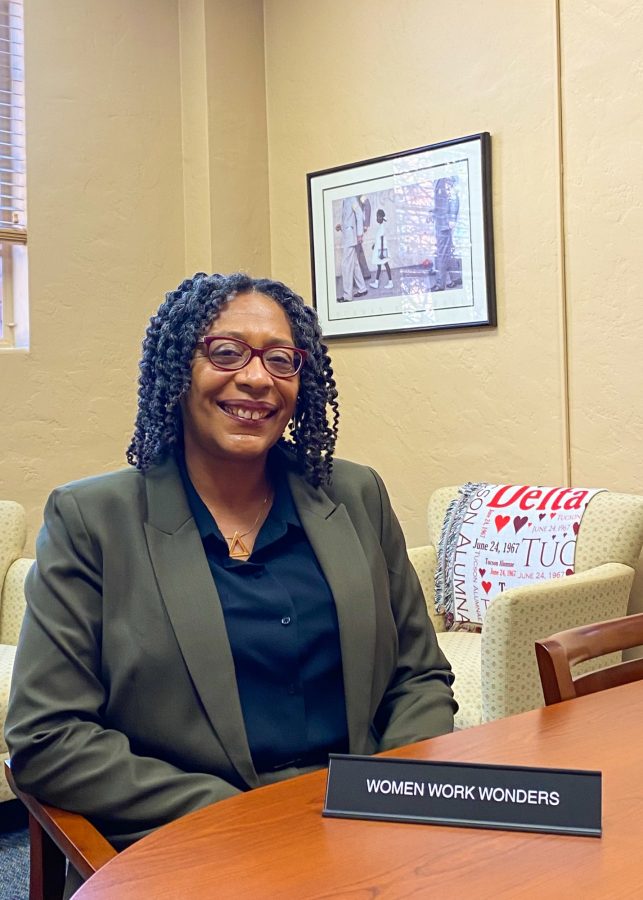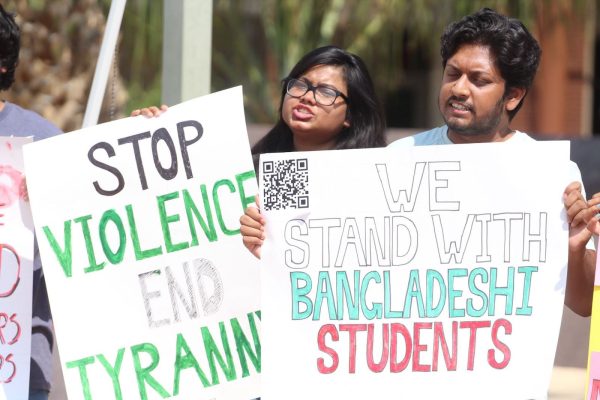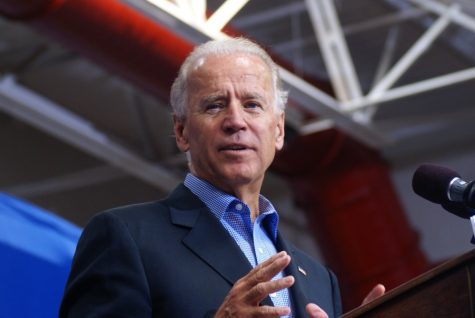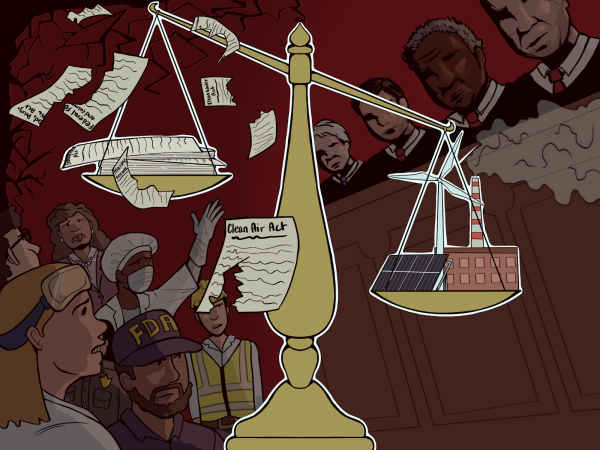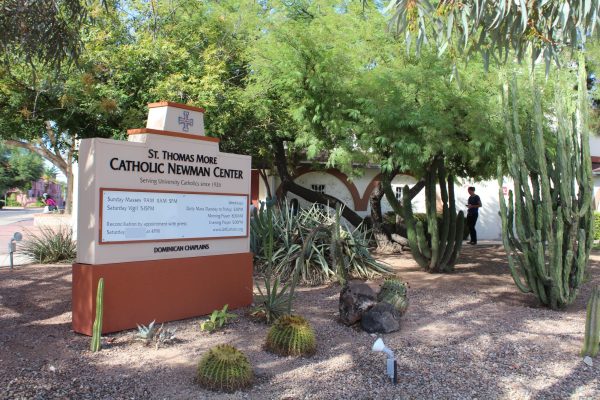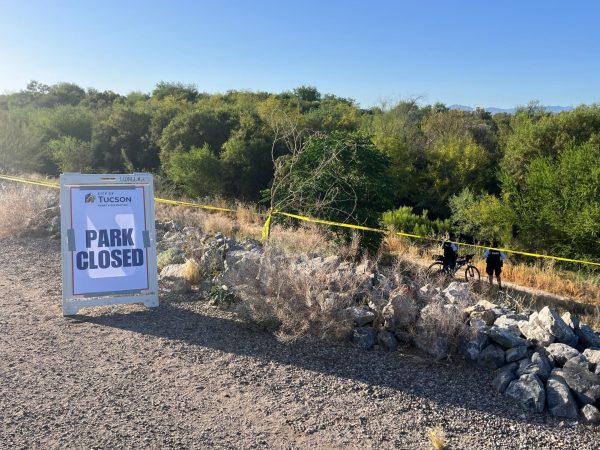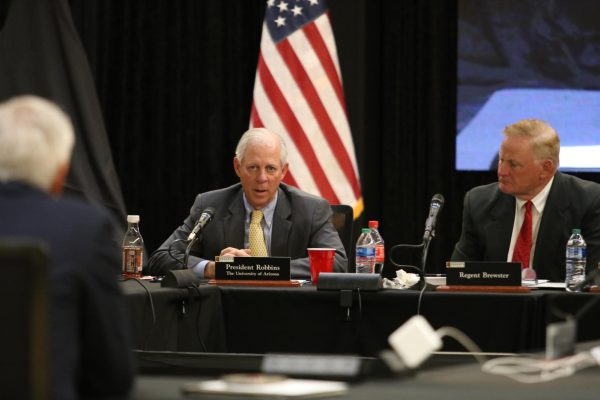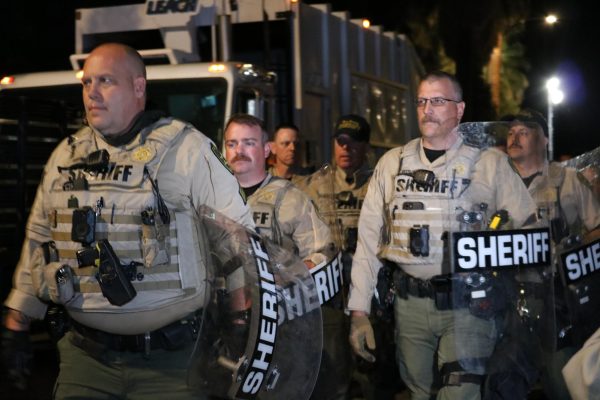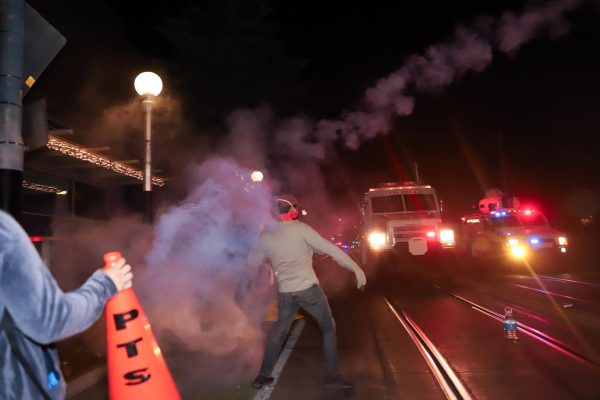Amidst increasing concerns about safety on campus, questions arise about how the Dean of Students Office is responding to safety concerns
Kendal Washington White, the Dean of Students and Vice Provost for Campus Life at the University of Arizona, sitting in her office in the Nugent building.
May 8, 2023
In light of many events that have taken place on campus this year, safety at the University of Arizona has been a rising issue of concern for students and faculty.
“A lot of people don’t feel safe on campus,” said an anonymous student, who was repeatedly approached by clubs and organizations who market themselves as light-hearted leisure groups but are actually Christian-oriented organizations. After discovering that the leaders of one of these groups were not UA students, she reported the organization to the Dean of Students Office.
The student did not see any action or changes made from the office after filing this complaint.
“They hear you out, but don’t do anything about it,” the student said.
This is a recurring sentiment among students, many of whom are upset about the ease with which non-affiliated groups can get on to campus and interact with students.
Associate Dean of Students Chrissy Lieberman noted the difficulty of responding to these groups and their presence on the UA campus, citing litigation and aggravation as potential challenges.
“Non-affiliated groups are tricky because we are a land-grant institution. We run into a variety of outside entities that use our space to get in front of our students or try to get a rise out of a student because it’s provocative and gives these groups attention. If we don’t let these groups on campus, we set them up for potential litigation,” Associate Dean of Students Chrissy Lieberman said. “They like to use large institutions like ours as examples of which schools are allowing free speech or religious freedom.”
In response to the graphic anti-abortion display that was on UA campus April 12-13, Lieberman said, “we still have to figure out how to navigate the law of the land and the interpretation of the First Amendment on a public campus, but most importantly its impact, since there is no value in students feeling traumatized.”
Lieberman recognized the validity of the response from students and groups on campus, and encouraged students to continue to question the policies and decisions made by administration.
“I understand why students are mad. It’s uncomfortable, it’s traumatizing and they should be questioning and challenging everything,” said Lieberman.
Lieberman also emphasized the diversity of perspectives and opinions about different campus practices and policies, noting that while some students may be comfortable with certain things, other students may not share that comfort.
“I feel as if what’s happening right now is, this year in particular, has thrown us all in a cycle of trauma. Some people are processing, some people are focused on getting through school, so I feel like since there are so many different lived experiences and perspectives among our students that everyone has a different definition of the word ‘safety,’” Lieberman said. “For example, while some students may feel safer with more police on campus, others students may feel safer with less police on campus.”
For concerned students, Dean of Students Kendal Washington White said, “I recommend students to write a letter to the president on what they would like to see happen. All of us play a role, but my role is to help students understand how the university operates in what we can do and what we can’t do. We want our students to see us as partners because we are here to help them succeed. ”
Follow the Daily Wildcat on Twitter



